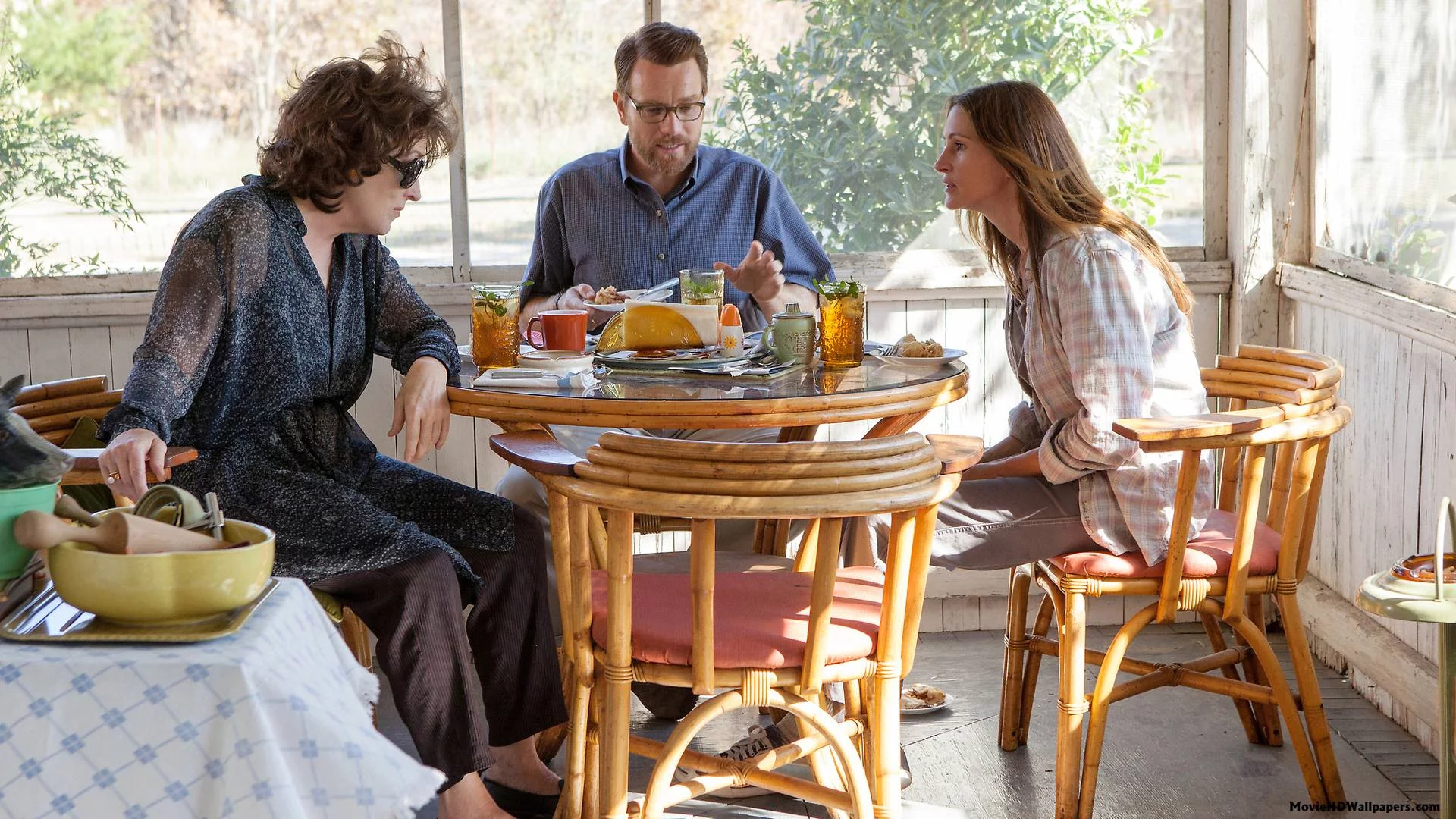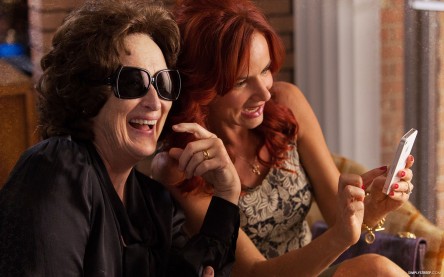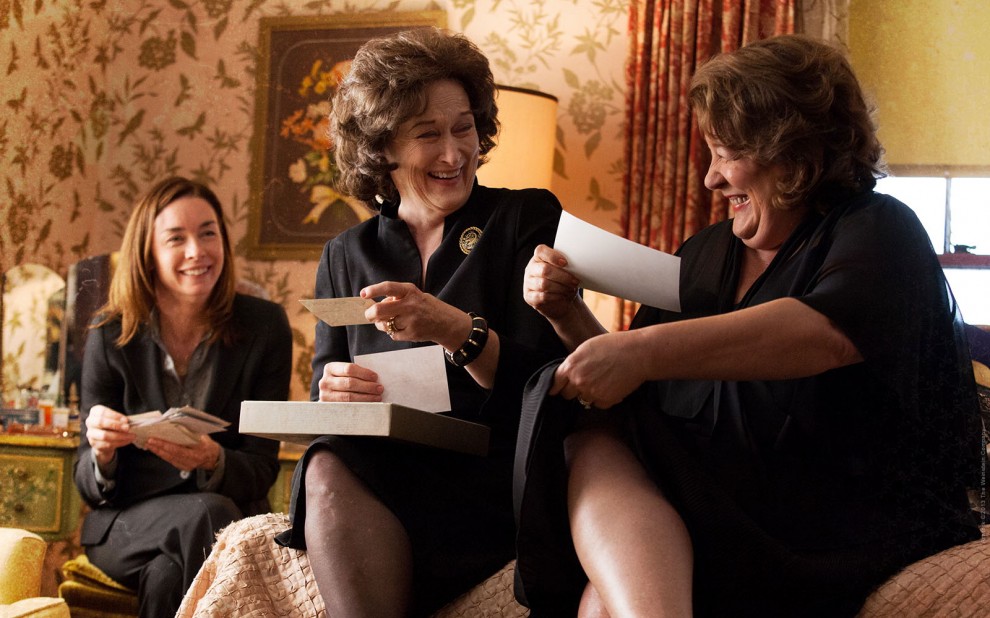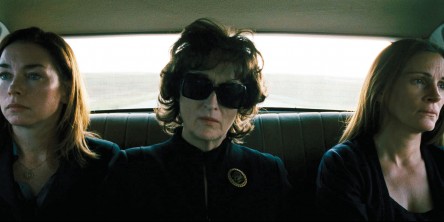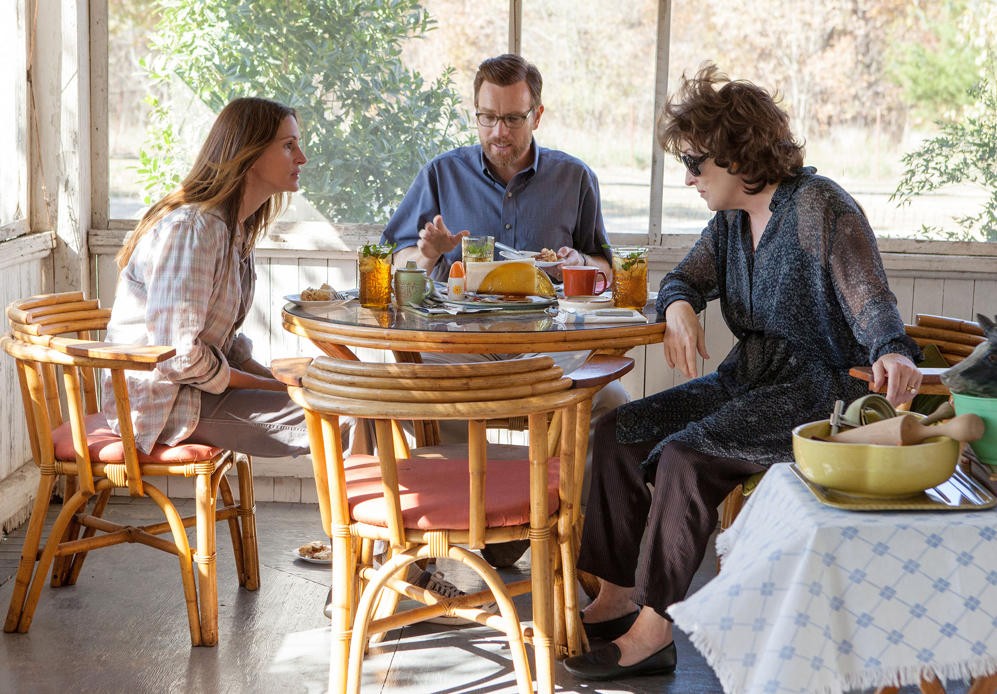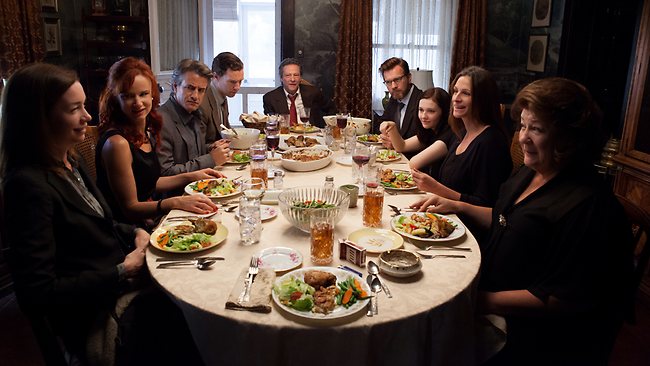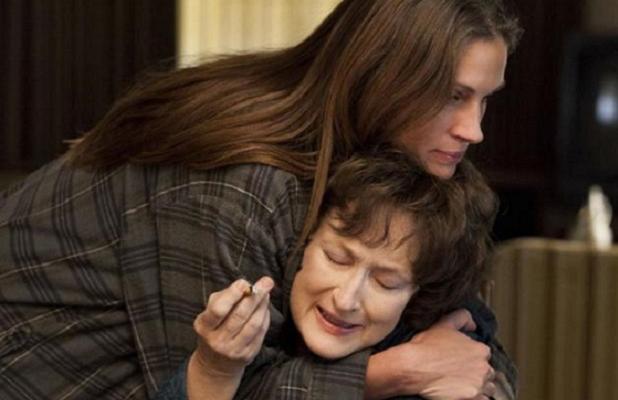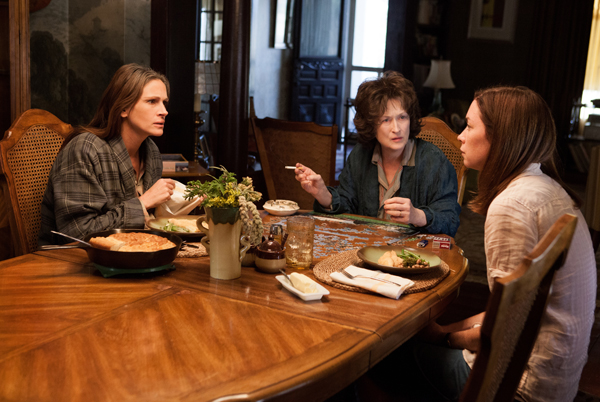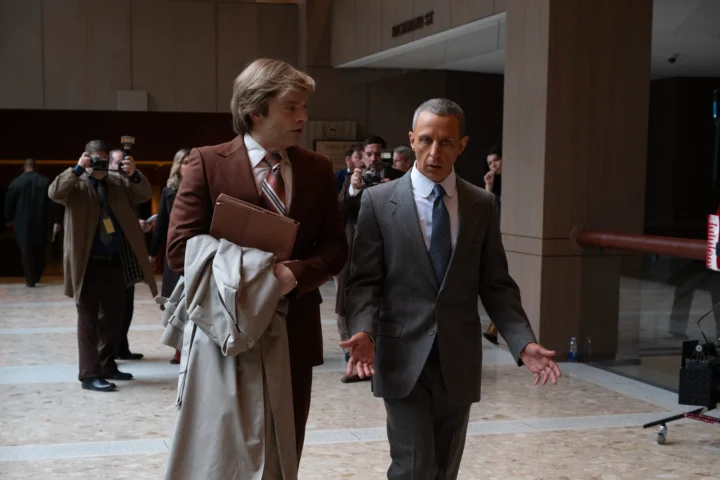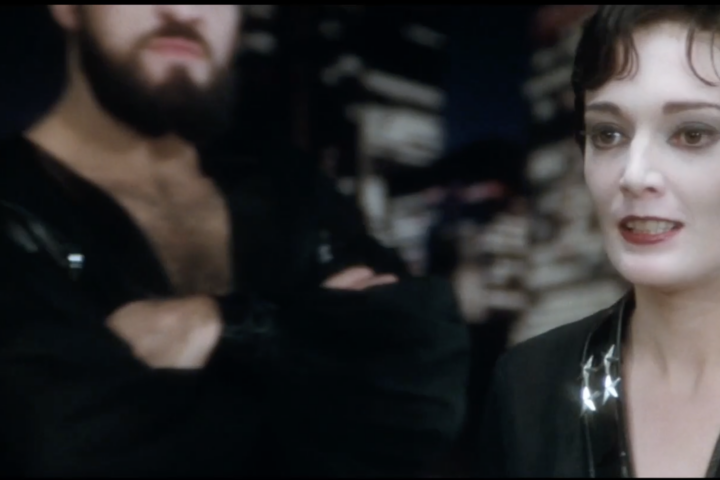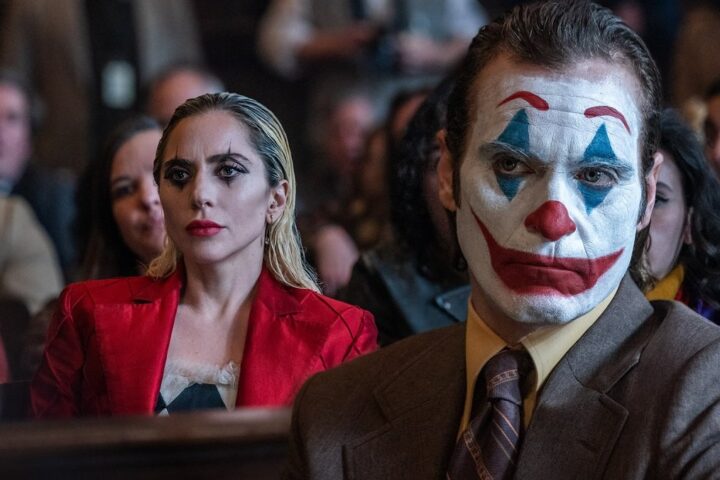You won’t find a better acting ensemble this year than the sprawling cast of August: Osage County, the new film adaptation of Tracy Letts’ celebrated, Pulitzer Prize-winning play, about an extended—and highly dysfunctional—southern family reuniting on the Oklahoma plains after the patriarch’s death.
This homecoming in August: Osage County is presided over by a prescription drugged, barbed-tongued Meryl Streep as Violet Weston—a herculean performance as mother and monster to three wayward, adult daughters, well played by Julia Roberts, Juliette Lewis and Julianne Nicholson.
In a movie about deep wounds and family secrets, the damage loved ones inflict on each other and the miles of distance between them greater than vast plains surrounding the Weston family estate, August: Osage County is filled with put-downs and one-ups, trespasses and revelations, original characters and delicious performances.
This is never more evident than in the play’s now famous, dinner table “truth-telling” scene, preserved line-for-line in the screen version, as an imperious Streep, like an overlord of calculation and cruelty, viciously dresses down each family member, zeroing in the insecurities of her daughters and their transgressive husbands and partners. It may be the year’s best-acted movie scene, and one that garners gasps from audiences.
I recently caught up with the delightful Juliette Lewis, the bohemian artiste, actress and singer who memorably plays the colorful daughter Karen, alternately infusing her with sparkle and pathos; Julianne Nicholson, who has the difficult task of illuminating introverted daughter Ivy and giving us slow-burn revelations, minus histrionics; and the incomparable force that is Margo Martindale, starring here as Streep’s whirlwind of a sister, Mattie Fae, who has some truth-telling of her own to do. Each of these women could easily score an Oscar nod for her rich work here—you could round out the female acting categories this year with a mere one picture.
Martindale, the unsung American character actress bar none who has done indelible work in Million Dollar Baby, Paris Je T’aime, Secretariat and scores of Broadway, film and television roles over the last four decades, is near larcenous in August: Osage County—she just about walks away with the film.
Also attending was Tracy Letts, the great American playwright and actor (his Steppenwolf performance opposite Amy Morton in 2012’s Who’s Afraid of Virginia Wolf revival was unmistakably world class), who has penned screen adaptations of his popular works Bug, Killer Joe and now August: Osage County, joining us to talk about his approach to scaling down his magnum opus into an accessible Hollywood movie, yet taking care to give each character his or her due. And he has. In a story inspired by Tennessee Williams and Eugene O’Neill, featuring troubled, adult characters sometimes holding, sometimes playing the often unforgiving cards they’ve been dealt, it’s a rare pleasure to hear dialogue this literate, delivered by such pros.
Tracy, you have obviously pared down your source material significantly, yet retained the essence of the original, giving full voice to each of the characters. If I’m not mistaken, the tone here is slightly different also.
Tracy Letts: Yeah, I think the tone is different. Audiences receive movies differently than they do plays. In the theater, audiences lean forward and actively participate and listen. But they don’t in a movie as much. You can’t eat popcorn and watch a play, but you can eat popcorn and watch a movie. I always do. You are sort of just in your seat and the movie is washing over you in a way. So I think that in and of itself changes the tone somewhat. But yeah, losing some length and depth in some of the characters a little further out on the edges has changed the tone. By losing most of the prologue we get into the humor a bit quicker. But I’m glad to hear you say that it retains that sense of the same.
Juliette, Karen is a live wire here, an extrovert with hidden layers. Did you find a common ground or personal connection with her?
Juliette Lewis: She reminded me a little bit of my mom in some ways. My mom would befriend just about anybody, and no matter how dark they appeared to us or to any other person, she would see only the goodness or what that person had sold her. My mom hasn’t driven since a car accident in 1974, and a perfect story would be that she befriended somebody on the bus who came over to a Christmas party. All the kids were thinking, ‘This guy looks like an alcoholic who lives on the street and probably doesn’t even pay his own rent.’ And my mom said, ‘He really wants to start his own business and he comes from a good family.’ She will tell you, and it’s to this point of denial of sorts, and it’s a beautiful quality about her and it is also a fault. What I related to is that I have had the same things in certain times of my life where I am painting something rosy where maybe I shouldn’t be, and ignoring the telltale signs. I also understand being a single lady who is older. I wasn’t raised with those notions, though, of a white wedding. My parents were always strange!
Margo, my favorite line from Mattie Fae comes late in the film where she reveals that, ‘There is more to me than that.’ Seeing you over the years in great performances in Million Dollar Baby, Paris Je T’aime and so many other roles, I have always thought the same about you—that there is much more than we are sometimes afforded to see—and it’s good to see you front and center in this film. I also wondered whether Mattie Fae’s no-nonsense style might be akin to your own demeanor, and whether you are at all alike.
Margo Martindale: I don’t think she is close to me at all. I am sympathetic, and very, very compassionate! (laughs)
I’m not sure I phrased that correctly!
MM: But I do know what you mean! Mattie Fae has a different rhythm than I do. She has a different speech delivery than I do, in that she speaks faster and quicker. I see it, and I see somebody completely different from me. Though I do see that I am from Texas and I do have the same kind of hair that I really have, and I do like make-up. And Mattie Fae looks a lot like me! (laughter)
Julianne Nicholson: The resemblance is uncanny!
MM: But I understand what you are saying. I am outspoken in a way, I guess, but I am also extremely shy and quiet! I am a pensive and introspective person.
Julianne, Ivy is a very closed, quiet person who is about to blossom. In that reticence, she is quite different from most of the other characters, projecting an rich internal life in an environemt where her sisters and mother hold nothing back. How much did you imagine her internal world?
JN: Yes, I thought about who she was and where she lived and what her history was leading up to that point. I think she is definitely more uptight in that environment, but she is at a point in her life where she is going to change and she is getting out. So hopefully, after the movie ends, maybe she will flower.
Juliette, I was really struck by your use of humor in the film. I know some of this is inherent to Karen’s character, but you really made me laugh in the first half of the film, which was a bit of a welcome relief. Then I was struck at the end of the film by how much I felt in your final scene, when you show us what has been going on underneath that veneer. I think each character in the story eventually gets to that same place. Can you talk about balancing those dimensions in your portrait?
JL: Oh, yes. And that is what is underneath the whole time—is that girl. Gosh, I wish I could quote stuff, but I usually exorcise it and then it leaves me. It’s the same when I write songs. I never can quote lyrics. But in that last scene she says, ‘I’m just a human being and we are all stuck somewhere in the middle.’ That is how she understands things. It is one of the most profound, beautifully written scenes I have ever had the honor of playing or attempting to shed light into. So I just live for those kinds of human contradictions; what we reveal and what we conceal. And also, I have never been in a movie where I had a three-page monologue! (To Letts) Hey, thank you for that! But we have all met that person (Karen). I have probably been that person, where you talk too much out of nerves or you are trying to impress someone. It was such a thing of beauty to do that three-page monologue. Those were the two scenes that I auditioned with and I understood them incredibly, as in where she begins and ends. It was tough! The toughest parts of that last scene were the props and the rhythm—when she gets the pants up, when the suitcase folds. In movies, I am so conditioned to the sound guys not liking when you put anything on your lines. I bet in theater it is all right. All of that (business) you usually go, ‘Okay, I am going to put it in the space (between the dialogue).’ But I had to stop all that and do what was natural, because John actually liked that. And the frame was bigger, so you could have the noises be in the beats.
Tracy, what are your thoughts on the character of Chicago theater, and what defines it compared to in other places? August: Osage County began here and then went to Broadway, where it was also highly successful.
TL: It is ensemble. There has been a tradition of it for a long time. New York is more about economics and it is a star-driven system, and it impacts a lot of the theater that is done there. It has also become really hard to do new work in New York because it is so expensive. It has almost priced itself out of the culture business. Chicago has always had a long tradition of ensemble acting. If you are in a four-person play and three people are looking out for you, as opposed to you just looking out for yourself, then the work is going to benefit as a result of that. I think August: Osage County is an outgrowth of that. And I think that is exportable. The success of the play in New York was an amazing response. I think people were responding to the ensemble and seeing people sharing the stage together.
The centerpiece of the film is the dinner table scene, which is about twenty minutes long. It is quite involving, and for a modern movie where rules seem to dictate that you have to cut every two seconds and scenes have to be short, it stands as some kind of brave anomaly; it trusts the audience. I understand the dialogue was retained in full from the play, and it is so impressive in how it turns, on a dime, from comedy to drama. It really is a rarity and for me, one of the reasons why I love movies. Can you talk about creating those intricacies and what it was like to be at that table?
MM: I think that we came prepared to do that, and it just happened. I think each moment led to the next moment. I don’t think anybody figured out the turn from comedy to drama; we let the moments happen. You would get that infusion of insanity and truth coming from Meryl, and the quiet that would come after that all happened. It wasn’t planned at all. It must be in the writing itself that if you play what is there and let it land for real, the moments that change from funny and laughing to horror- it was visceral in that room. It was incredible.
And it was three days of shooting?
JN: Is it nineteen pages, Tracy?
TL: Something like that.
JN: I think John had given himself five says to do it, and we did it in a little over three-and-a-half days. He broke up the scene into three sections.
MM: Six pages a day.
JN: Six pages a day. And also the night before we started filming, we all gathered at Meryl’s house, ordered in food and had dinner, and we sat where we were going to sit the next day, and we read through the scene to get a feel of what that scene was, what the beats were and who was all going to be at the table. And I think that was a great help also. It took much less time that they were anticipating because everybody came prepared and everybody was so excited to be there.
MM: And truly, when it was playing out, because of the writing, those moments just happened.
What is that like to be at a table full of actors all at the top of their games at the same time? Does that happen often?
JL: It does not happen often. It was a really rare and special experience. I was floored that there was no hierarchy and no egos. You had so many personalities and we all sort of came to the table in a similar fashion, there to do our best and without a lot of artifice or what have you. But all with different processes and how we approached it. But really down to earth, and a cool bunch.
MM: Yes, no artifice. That is exactly right. No bullshit. No attitude.
JN: I think everyone was excited to see what the other people were going to do! It was so exciting. I didn’t want it to end! Any time we were moving on I felt disappointed, because every time it was different.
MM: I remember the first time through when Meryl did her turn, and I don’t even think we were filming. It was so electric. Everything was organic or natural. I don’t know if we filmed that or not!
JL: I know! You reminded me, ‘Game on! She is steering the ship! That is Violet, and she runs that table!’
MM: It was extraordinary.
JL: I remember that! You and I were moved to tears! She was so scary!
Have any of you watched it with an audience? It’s a gratifying experience how engaged they are, and realizing that the dialogue is what brings down the house. That doesn’t happen much these days.
JN: That was the response at the Toronto Film Festival. Hearing all of the laughter was also really exciting. They were either silent or reacting.
Julianne, it was great to see you in this ensemble. I’ve been following your work all the way back to your performance in Tully, but you have kept a somewhat lower profile.
Two years ago, I turned forty and moved to California for my husband’s work. We though, ‘This is great. We have two young kids. We are staying here where all of the studios are. It is going to be pilot season and I am going to get a television show.’ Nothing happened. Fucking crickets. I think I got three auditions that season, one call back and no screen test. I was suddenly faced with having to believe in myself. And what was going to happen? For the first time in almost twenty years that conviction rocked. I was like, ‘Now what? Now how am I going to feed my babies?’ Then I got a lead role in a new Sam Shepard play in New York, which was so exciting. And then while I was doing that play, this happened. And I can relax again. But in my experience, a career is a very funny thing. And you can feel really not successful, and you hope that there will be an upswing. And I have to say that this movie gave me so much in terms of confidence, belief and validation, aside from just the utter joy I had in making it.
Margo, you have had quite a storied career and worked with so many directors. Was there one to whom you felt a special connection?
Alexander Payne. Because he directed me like a silent screen actress. Because I can act (laughs), he can tell me how to feel, and I can do it. Isn’t that marvelous? (laughter)
JL: I love it!
The words ‘Weston’ and ‘dysfunction’ seem nearly synonymous. At the end of the film, I was left wondering if anything good can come from what has occurred. Has there been any healing, at all? Do any of you see it as optimistic in any way, or just blackness? There seems to be a slight uptick in the film version, no? I can tell that Juliette disagrees.
JL: No, no! I am trying to imagine- it is so true to life when you have this explosion. It is definitely a turning event. Recently, I was all by myself doing a Q&A and people said, ‘What happens to Ivy at the end?’ ‘What happens to Karen?’ I started making stuff up! I said, ‘Karen and Steve go to Belize. They have an argument, but Karen tries to make things okay. Steve hits on the waitress. And then Ivy…’
JN: What happens to us? I want to know too!
JL: I said, ‘Ivy and Little Charles…’
JN: Charles!
JL: ‘…do see each other and they talk. There is a lot of silence. There is crying. They do not hook up again, as the kids say. There is a lot of crying, and then Ivy goes into sales.’ (laughter) Tracy is hating me right now!
MM: You felt optimism in what way?
Well, at least the truth is out, and perhaps some healing, especially with Barbara, can begin. At least on her part there is a facing of demons. In the final scene, which I know was written for the film, she seems to have come out the other side.
JL: Yes, that is true.
TL: I think that the family- that family, with Beverly and Violet and the three daughters, that family has exploded and the children are cast to the wind. There is hope for them. There is hope for Mattie Fae to make something new with Charles. There is not much hope left for Violet. That tissue is dead, or dying. Of course, the play ended with Violet alone in the house. And that increased the feeling that that thing is over. But for those other children who have been cast away, I think possibilities still live for them. It is not a very positive ending for Karen, who goes off with Steve, but that is not necessarily her ending. Who knows what happens?
JL: No! She cannot exchange those flight tickets! They were very expensive! Oh, and he bought her a necklace while they were on vacation.
MM: But even for me, watching the way it ends now, I took the ending to be like the play, even though it is outside the house; that Barbara will always have this world in her body and mind, but that she is finished with it. But no matter how much you are finished with it, you are never finished with it.
Special thanks to Tracy Letts, Juliette Lewis, Margo Martindale and Julianne Nicholson for this interview.
